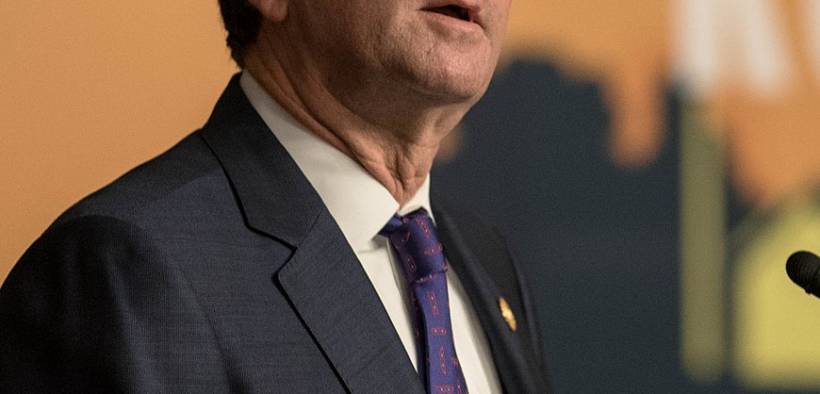Virginia Enacts Hairstyle Protections Against Racial Discrimination

“It’s pretty simple, if we send children home from school because their hair looks a certain way, or otherwise ban certain hairstyles associated with a particular race, that is discrimination. This is not only unacceptable and wrong, it is not what we stand for in Virginia.”
Virginia became the fourth state in the union to ban discrimination based on hair, courtesy of a bill signed by Democratic Governor Ralph Northam. House Bill 1514 is the first such legislation to be enacted into law from a conservative-leaning state. Similar laws were passed in California, New York, and New Jersey, Francisco Guzman and Saba Hamedy reported for CNN.
The CROWN Act Catches Fire
Effective July 1, the law amends the Virginia legal code on discriminate “on the basis of race” to encompass hairstyles commonly associated with African-Americans such as braids, locks, and twists, in addition to texture and type, Charlottesville-based CBS 19 reported.
The law is the most recent development in “The CROWN (Create a Respectful and Open Workplace for Natural Hair) Act” movement, sparked by California’s initiative to reduce education and employment discrimination on the basis of hairstyle.
“It’s pretty simple, if we send children home from school because their hair looks a certain way, or otherwise ban certain hairstyles associated with a particular race, that is discrimination,” said Northam following ratification of the law on Wednesday. “This is not only unacceptable and wrong, it is not what we stand for in Virginia. This bill will make our Commonwealth more equitable and welcoming for all.”
“Hair Love” Catapults the Conversation of Nationwide Efforts
African-American discrimination was brought to the limelight thanks to a recent crowdfunded animated film short crated by Matthew Cherry and Karen Rupert Toliver. The motion picture depicts a father’s struggles of managing his daughter’s hair.
The film “Hair Love” went on to win the Academy Award for best animated short this year.
“Hair Love was done because we wanted to see more representation in animation,” Cherry said during his acceptance speech, CNN reported. “We wanted to normalize black hair. There’s a very important issue that’s out there, the CROWN Act, and if we can’t help to get this passed in all 50 states it will help stories like DeAndre Arnold’s who’s our special guest tonight.”
Arnold and his mother, Sandy, was in attendance at the award presentation. His story garnered media attention when he was told to cut his dreadlocks in order to walk at his high school graduation in Mont Belvieu, Tex.
Others Come Forward with Hair Disputes
Arnold’s story was not an outlier; others across the US carried the same undertone: cut your dreadlocks, remove your braid extensions. Schools have argued the traditionally African-American hairstyles violate school policies.
In Massachusetts, two black students were given detention, CBS News reported, and in New Jersey, a white referee forced a black athlete to cut off his dreadlocks in order to compete in a wrestling match.
In Virginia, stories of African-Americans being self-conscious about their hairstyles began to crop up. Deandra McDonald was profiled by CBS 19. She recounted how she had to consider keeping her hair either short or straight in order to find employment.
“I remember being very cognizant as a child, and my mom being very aware too, of making sure my hair looked ‘neat,’” McDonald said. “Whatever that meant. But making sure it looked neat so that I looked professional. Later on, learning that I was associating neat and professional with straight.”
In a Reddit post on the topic, users recounted more stories about their hair plights. Virginia resident whyhellomichael said, “My partner works in a bank was told she needed to do something about her “natural hair.”
Another user, therealcherish, said she would interview with straight and sleek hair, then report to work with her naturally thick, curly hair to the scorn of her mostly-male coworkers.
Removing Remnants of Segregation
Northam also signed a bill to remove discriminatory language in state laws pertaining to racial segregation in schools. A Commission to Examine Racial Inequality found roughly 100 cases of such language and recommended their removal. The bill followed similar legislation already passed this year as the committee continues to sift through state laws.
The language no longer had a legal effect and were simply a remainder from the pre-civil rights era.
“During the Jim Crow era, racism and discrimination were written into laws that were used to enforce segregation and inequality across the Commonwealth,” said Northam. “Words matter, and there is no reason for this overtly discriminatory language to remain on our books. I am proud to sign this bill to move Virginia forward.”
Overcoming His Past
Northam’s actions toward racial equality, while likely genuine, could help the governor recover from racist stains on his background. Shortly after his election, an image surfaced from Northam’s 1984 medical yearbook that depicted him in blackface next to another student wearing a Ku Klux Klan costume.
Northam issued an apology amid calls for his resignation. Although the photo appeared on Northam’s yearbook page, it was never determined whether he was the one in the photo. The governor maintained that he could not recall being in the photo and an investigation to identify the individual concluded without result.
Regardless, he apologized and kept his position as governor.
“I recognize that it will take time and serious effort to heal the damage this conduct has caused. I am ready to do that important work,” Northam said in an apology.
Removing segregationist language and enacting further protections for African-Americans should help him overcome the negative publicity that will undoubtedly resurface if he choose to run for reelection in 2022.








Why worry if your child is sent home from school? He’s not learning anything there, anyway.